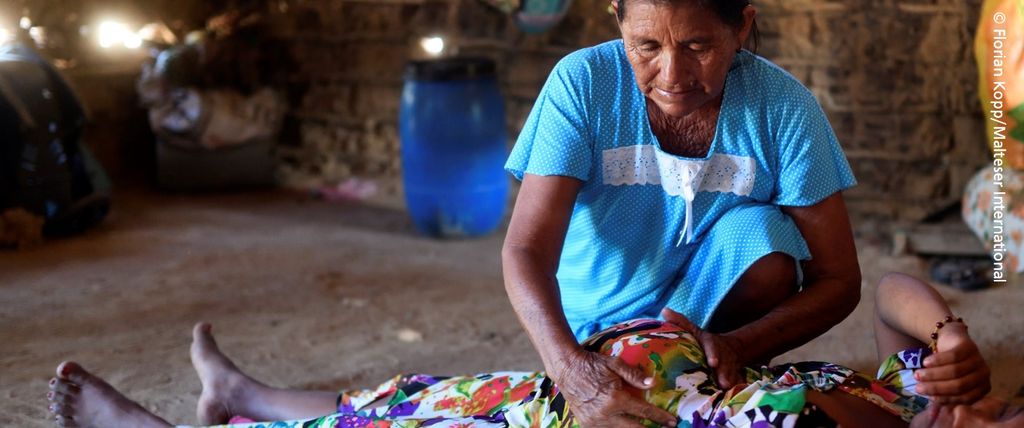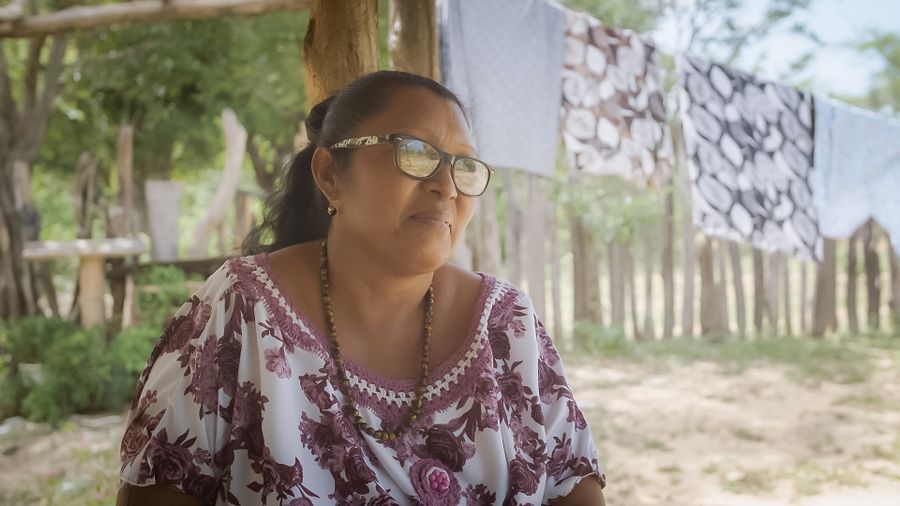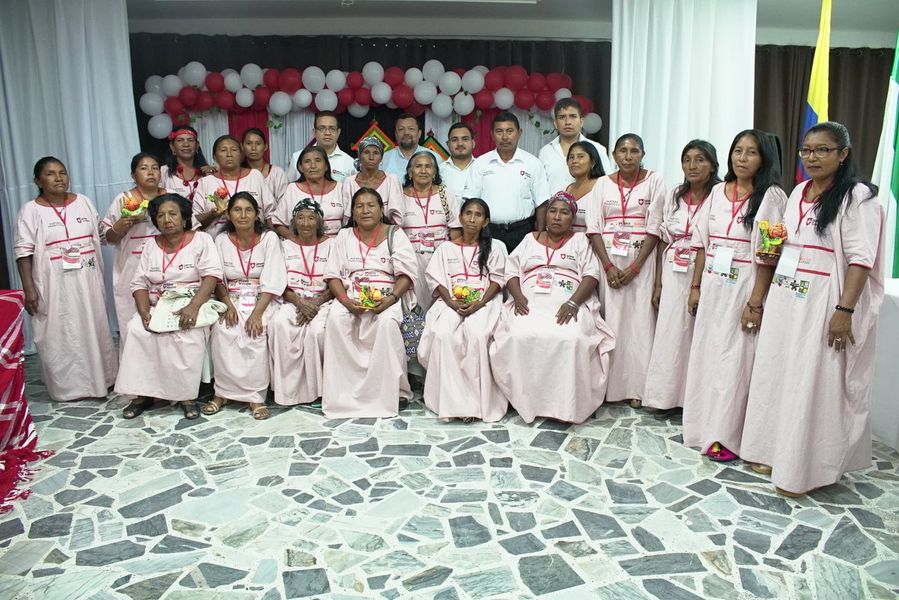
Training midwives in Colombia's indigenous communities

Juanita Herrera is an indigenous Wayuu from the community of La Plazoleta in the dusty desert of Colombia’s northernmost department of La Guajira.
“In the Wayuu language, I am called Alüjülii, a natural healer,” she said, proudly referring to her work as a traditional birth attendant. “I feel that I was born to help.”
For centuries, traditional birth attendants and midwives like Juanita have played a key role for pregnant women in indigenous communities. Their years of experience and knowledge of natural medicine have earned them trust and respect as invaluable providers of rural maternal care. Pregnant women have relied on their expertise to ease the discomfort common during pregnancy and provide care even after childbirth. However, most traditional birth attendants are often incapable of handling obstetric complications, leading to high maternal and infant deaths.
Poverty and inequality are linked to high maternal and infant mortality
The majority of Colombia's Wayuu population live in poverty. Lack of water and hunger, exacerbated by periods of drought, are among the biggest problems facing the ancestral tribe, with many children suffering from malnourishment.
There are no state-run health facilities in the villages. The available clinics often do not know how to provide culturally informed care tailored to the needs of indigenous women. This is compounded by the low levels of education in the communities; many Wayuu never went to a school and cannot read or write. The resulting language and cultural barrier means that many Wayuu women are less inclined to seek timely medical help during pregnancy.
By training local midwives, Malteser International is helping to provide the skilled care indigenous women in Colombia need to give birth safely.
Juanita was one of 20 Wayuu midwives to receive training to treat basic problems, recognize warning signs of a complicated pregnancy, and refer risky cases to a skilled medical practitioner. The training included knowledge exchange with health practitioners, gynecologists, and pediatricians from Malteser International’s partner institutions as well as practical experience in the Anashiwaya Clinic in Riohacha where the midwives gained an insight into conventional methods of child delivery.

The culturally sensitive approach to the training meant that the aim was not to re-educate the midwives’ along western lines, but rather to expand their traditional knowledge.
“It was important to build trust with the traditional midwives,” said Medoza. “They have continued to be a reliable link to the local women.”
Juanita is grateful to Malteser International and its partners for facilitating the trainings that have taught her new skills. “Sometimes in the past, the babies died in my hands,” she said. “Now I have much more experience thanks to Malteser International. We learned about the importance of handwashing and hygienic methods of cutting the umbilical cord. We have been trained, we have practiced and now we understand.”
Your donation can help save lives in childbirth.
Donate now!








